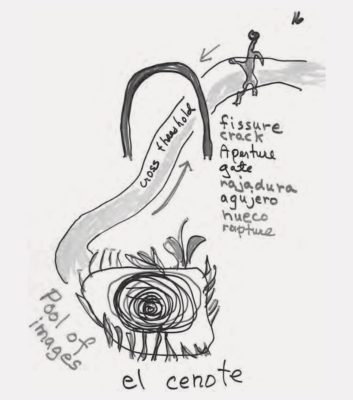Search
To search for an exact match, type the word or phrase you want in quotation marks.
A*DESK has been offering since 2002 contents about criticism and contemporary art. A*DESK has become consolidated thanks to all those who have believed in the project, all those who have followed us, debating, participating and collaborating. Many people have collaborated with A*DESK, and continue to do so. Their efforts, knowledge and belief in the project are what make it grow internationally. At A*DESK we have also generated work for over one hundred professionals in culture, from small collaborations with reviews and classes, to more prolonged and intense collaborations.
At A*DESK we believe in the need for free and universal access to culture and knowledge. We want to carry on being independent, remaining open to more ideas and opinions. If you believe in A*DESK, we need your backing to be able to continue. You can now participate in the project by supporting it. You can choose how much you want to contribute to the project.
You can decide how much you want to bring to the project.

One of the most frequently cited meanings of myth in feminist and queer theory (especially in that written by authors from the Global North) is when it is thought of as a fiction devised by the cisheteropatriarchal and colonial power structures to symbolically order the world and, therefore, as a narrative justification of its violence. At a time when criticism recognizes the need to demystify the body in order to restore its sovereignty, the authors gathered here in this issue titled “Magical Abnormalities”[1]“Magical Abnormalities” is the title of one of the sections of Borderlands/La Frontera by Gloria Anzaldúa in which she explores the relationship between border-line and non-binary bodies within … Continue reading speculate about the need to mythify and mystify what it means to be queer in the arts. The mediums of Bestiario cuir hold our hand and to help us become possessed by four riders; edu rubix invites us to listen closely to the eternal cry of the Gorgons; Júlia Ripoll reinterprets the figure of James Baldwin as that of an androgynous freak; and Elena Castro proposes an approach to fantastic visuality from a new sense of sincerity.
This month’s issue offers a seedbed from which to understand that the fact that gender and sexuality are situated narratives (classified as myths within critical literature) not only allows us to expose them as naturalized fictions in order to delegitimize them, but also presents us with the opportunity to narrate, discount and retell new (auto)biographies that embrace a greater multiplicity of bodies. Our bodies have always been required to possess an extraordinarily high level of clarity and conciseness in order to justify our desire to belong, to be desired and desiring and, in short, to cling to life, but we now claim our right to non-literality[2]I first thought of this thanks to an interview with Juliana Huxtable in which she said: “I think it’s really important that as a black trans woman I have the right not to be documentary, to not … Continue reading. Explaining ourselves as fabulous, phantasmagorical and legendary beings allows us not only to shatter normative epistemology but also to attempt new ways of thinking thoughts and globalizing the globe[3]Donna Haraway, Seguir con el problema, Generar parentesco en el Chtuluceno /Carry on with the Problem, Generating Kinship in the Chtulucene (Bilbao: Consonni, 2019), 66.. Let’s become as invisible as fairies, metamorphose into centaurs, reclaim a spiritual connection with witches, fall in love with Coyolxauhqui, and lust after Hermaphrodite! Let’s construct utopian scenarios and take refuge from reality!
Fantasy forever! Long live the monsters, the queers and the lovers!
[Cover images: Gloria Anzaldúa, El Cenote, s/f. Pictogram from Luz en lo Oscuro / Light in the Dark, 2015.]
| ↑1 | “Magical Abnormalities” is the title of one of the sections of Borderlands/La Frontera by Gloria Anzaldúa in which she explores the relationship between border-line and non-binary bodies within the supernatural in indigenous cultures. |
|---|---|
| ↑2 | I first thought of this thanks to an interview with Juliana Huxtable in which she said: “I think it’s really important that as a black trans woman I have the right not to be documentary, to not have to be literal.” |
| ↑3 | Donna Haraway, Seguir con el problema, Generar parentesco en el Chtuluceno /Carry on with the Problem, Generating Kinship in the Chtulucene (Bilbao: Consonni, 2019), 66. |

blanca arias (she / they) is an artist, researcher, witch and lesbian, committed to love and criticism. Born in Barcelona in 1998 under the sign of Scorpio, they feel a special responsibility towards the making of imaginaries that generate more livable worlds for all bodies. Some of her recurring lines of work are the exploration of lesbianism as a path of resistance, the link between femininity and vulnerability, myth as a line of flight and a space for intimacy, or counter-normative knowledge circuits in relation to witch practices. She holds a degree in Art History from the University of Barcelona and a Master’s in Comparative Studies in Literature, Art and Thought from Pompeu Fabra University.
"A desk is a dangerous place from which to watch the world" (John Le Carré)